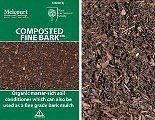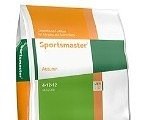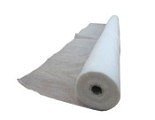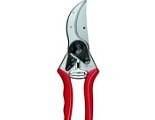
Autumn Gardening Guide
5 Minute Read
As the vibrant hues of summer gracefully yield to the muted palette of autumn, the garden undergoes a captivating transformation, where the crisp air and falling leaves usher in a unique set of opportunities and challenges for avid gardeners. In this guide, we'll explore the art and science of gardening in autumn, navigating through the tasks and delights that this season brings. From preparing plants for their winter slumber to maximising the beauty of fall foliage.Gardening in autumn
Autumn is a busy season for our gardens, whether you are giving your lawn some much-needed TLC after the long hot summer, planning next seasons vegetable beds or working out which spring bulbs to grow for bursts of colour next spring.Read on for our top autumn gardening jobs to ensure your garden is in great shape for the season ahead.
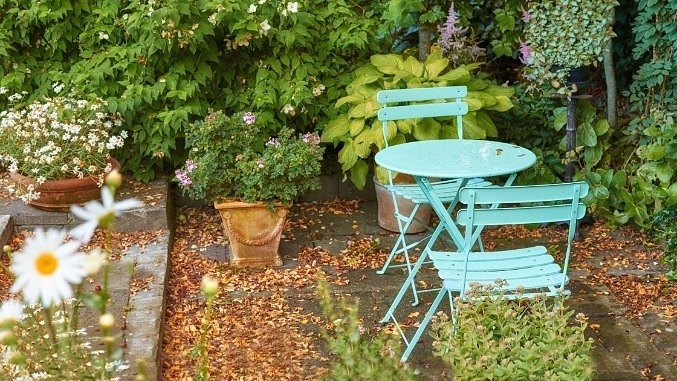
Composting
Compost is a nutrient-rich matter packed full of goodness. From an environmental perspective, composting reduces the amount of food and plant waste sent to landfill.
Managing a compost heap is as easy as adding food and garden waste to a prepared container. Generally, most food and green waste is compostable, but there are a few items you should avoid adding, such as meat and dairy products, citrus or onions.
To find out how to get started and our top tips for running a successful compost heap, we have a complete guide here to help you get started.
Composting tips:
• Do not add meat & dairy products to a compost heap. Check out our guide to what you should and shouldn't add here.
Compost is a nutrient-rich matter packed full of goodness. From an environmental perspective, composting reduces the amount of food and plant waste sent to landfill.
Managing a compost heap is as easy as adding food and garden waste to a prepared container. Generally, most food and green waste is compostable, but there are a few items you should avoid adding, such as meat and dairy products, citrus or onions.
To find out how to get started and our top tips for running a successful compost heap, we have a complete guide here to help you get started.
Composting tips:
• Do not add meat & dairy products to a compost heap. Check out our guide to what you should and shouldn't add here.
• Turn your compost at least once a month (or more to speed the process up further). Turning is essential for aerating the heap in order to break down the organic matter. Alternatively, you can use a compost accelerator or a compost booster to speed up the process.
• Do not allow your compost site to sit in extreme temperatures or high moisture zones.
• Compost bins should never smell- if it does, it may be sign the contents have become stagnant.
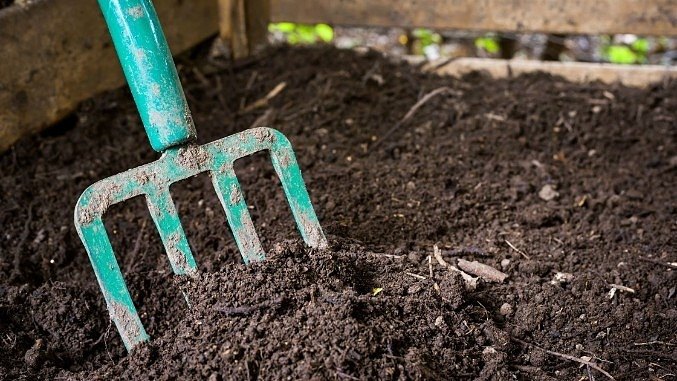
Tree planting
Tree planting season falls between October and April when the soil is moist and the roots are dormant. It's possible to plant container-grown trees and shrubs all year round; they are easier to care for if planted in spring.
Tree planting tips:
• Avoid planting in waterlogged or frozen ground, and assess the proximity to your home so as not to cause any structural damage or block drains.
• Ensure your new tree has the appropriate protection.Tree guards protect the trunk from wildlife damage, while stakes and ties ensure your tree has support in high winds.
• Pruning is essential in encouraging fruits and shaping your tree's new growth.
• Make sure to water regularly instead of giving more water less often. Under-watering causes drought stress due to the lack of water in the roots during drier months.
• Avoid planting in waterlogged or frozen ground, and assess the proximity to your home so as not to cause any structural damage or block drains.
• Ensure your new tree has the appropriate protection.Tree guards protect the trunk from wildlife damage, while stakes and ties ensure your tree has support in high winds.
• Pruning is essential in encouraging fruits and shaping your tree's new growth.
• Make sure to water regularly instead of giving more water less often. Under-watering causes drought stress due to the lack of water in the roots during drier months.

Pruning and shaping
Pruning is an essential part of gardening; there are different ways you can prune. Hard pruning controls the overall size and shape of a plant, while lighter pruning helps to subtly take control while, still allowing the plant to act as naturally (or as wildly) as it wants.
Pruning is an essential part of gardening; there are different ways you can prune. Hard pruning controls the overall size and shape of a plant, while lighter pruning helps to subtly take control while, still allowing the plant to act as naturally (or as wildly) as it wants.
Top tips for pruning:
• Improve air circulation by thinning out congested stems in the centre of fruit bushes.
• Use the well-maintained tools for the job to avoid damage to stems from blunt equipment.
•Clean tools after pruning to remove sap and keep well oiled to ensure the most precise cut each time.
• Improve air circulation by thinning out congested stems in the centre of fruit bushes.
• Use the well-maintained tools for the job to avoid damage to stems from blunt equipment.
•Clean tools after pruning to remove sap and keep well oiled to ensure the most precise cut each time.
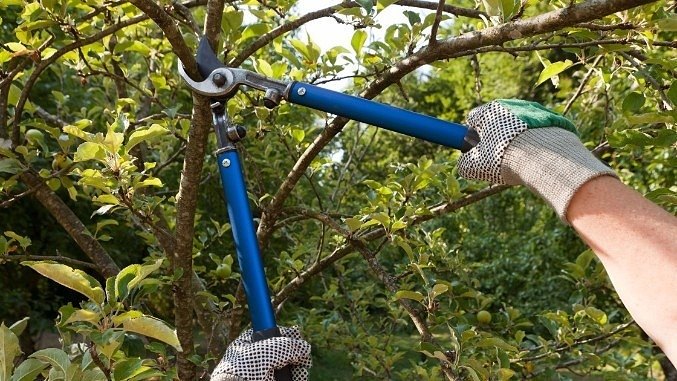
Maintenance and tidying
Raking, weeding and clearing up the garden after summer is an integral step in ensuring an abundant garden in the following spring. Keep on top of raking leaves as they fall on the lawn, place them in bags with a few air holes to make leaf mulch for future use. Alternatively, some leaves (always check for disease!) can be shredded and added to your compost heap.
Once your lawn is free from leaves and debris, apply an autumn fertiliser and possibly; a moss killer to ensure adequate access to nutrients throughout the colder months. Applying a lawn fertiliser now will yield a lush lawn in future.
Take a look at your beds, borders and areas that did well in the summer and how you’d like to plan for next year.
Top tips for a tidy garden:
Raking, weeding and clearing up the garden after summer is an integral step in ensuring an abundant garden in the following spring. Keep on top of raking leaves as they fall on the lawn, place them in bags with a few air holes to make leaf mulch for future use. Alternatively, some leaves (always check for disease!) can be shredded and added to your compost heap.
Once your lawn is free from leaves and debris, apply an autumn fertiliser and possibly; a moss killer to ensure adequate access to nutrients throughout the colder months. Applying a lawn fertiliser now will yield a lush lawn in future.
Take a look at your beds, borders and areas that did well in the summer and how you’d like to plan for next year.
Top tips for a tidy garden:
• If you have thatch and moss growth, we recommend raking your grass as this helps to reduce layers dead debris.
• Aeration ensures the longevity of your lawn by providing access to water and nutrients within the soil to strengthen the root system. The upside of aeration also means the grass will have a better chance of surviving the excess rain of winter, which leads to water-logging.
• Now is the perfect time to clean and tidy the shed and inspect your gardening tools to ensure they are in good condition.
• Aeration ensures the longevity of your lawn by providing access to water and nutrients within the soil to strengthen the root system. The upside of aeration also means the grass will have a better chance of surviving the excess rain of winter, which leads to water-logging.
• Now is the perfect time to clean and tidy the shed and inspect your gardening tools to ensure they are in good condition.
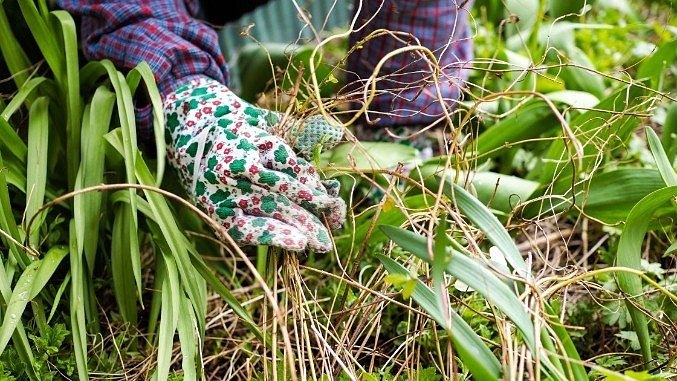
Autumn gardening essentials
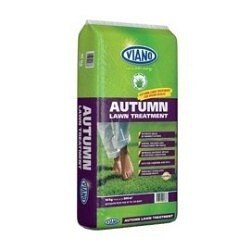
Autumn Lawn Fertiliser (Mo Bacter)
Autumn Lawn Treatment for autumn recovery, winter defence and spring health. Stimulates root growth and prepares the grass against adverse conditions such as stress, water-logging, snow or scarification, giving your lawn the best start in the spring.BUY NOW
Autumn gardening guides
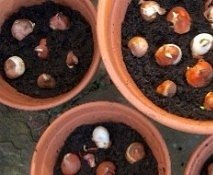
September gardening guide
A glorious month in the garden and a time for harvesting, September can be varied in terms of temperature, you may experience chilly mornings or nights but there is still a chance for some late summer warmth and sun.find out more
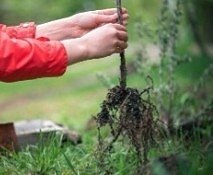
October gardening guide
With the dark nights getting longer and temperatures starting to take a turn, this is the month you'll notice the leaves turning from green to orange in preparation for autumn. It's worth keeping an eye on the forecast this month!find out more
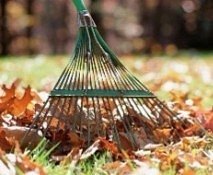
November gardening guide
November can be typically damp and windy but occasionally mild with a fair few days of autumnal sunshine - take full advantage of any bright, sunny days now so you can get ahead with preparing for winter.find out more
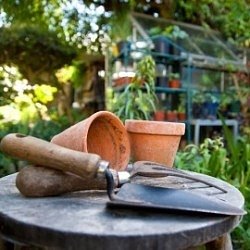
Advice & Inspiration
More information and advice from our shed, the place where you'll find great gardening advice and inspiration straight from the experts!Find out more
Comments (0)
Why not be the first to send us your thoughts?

